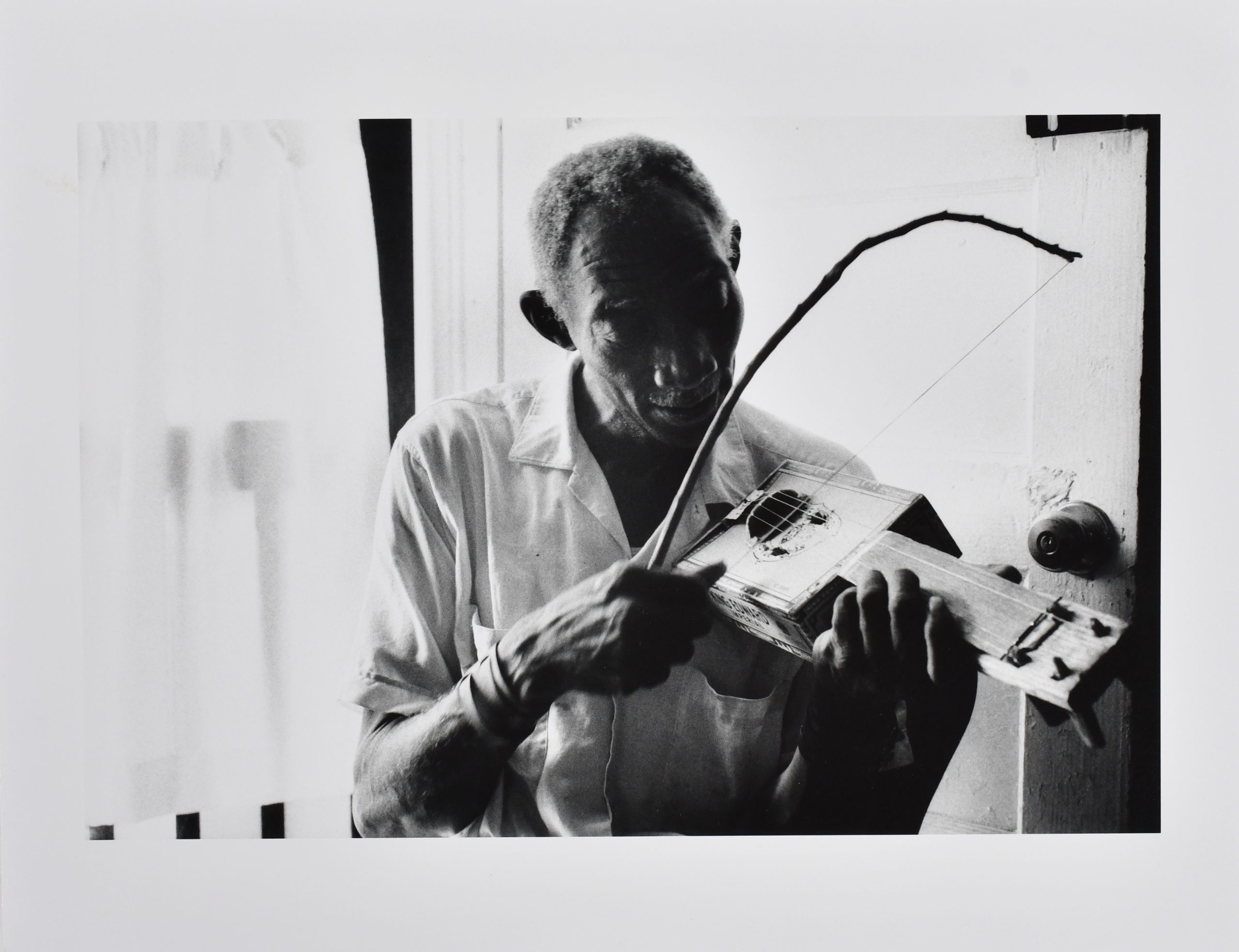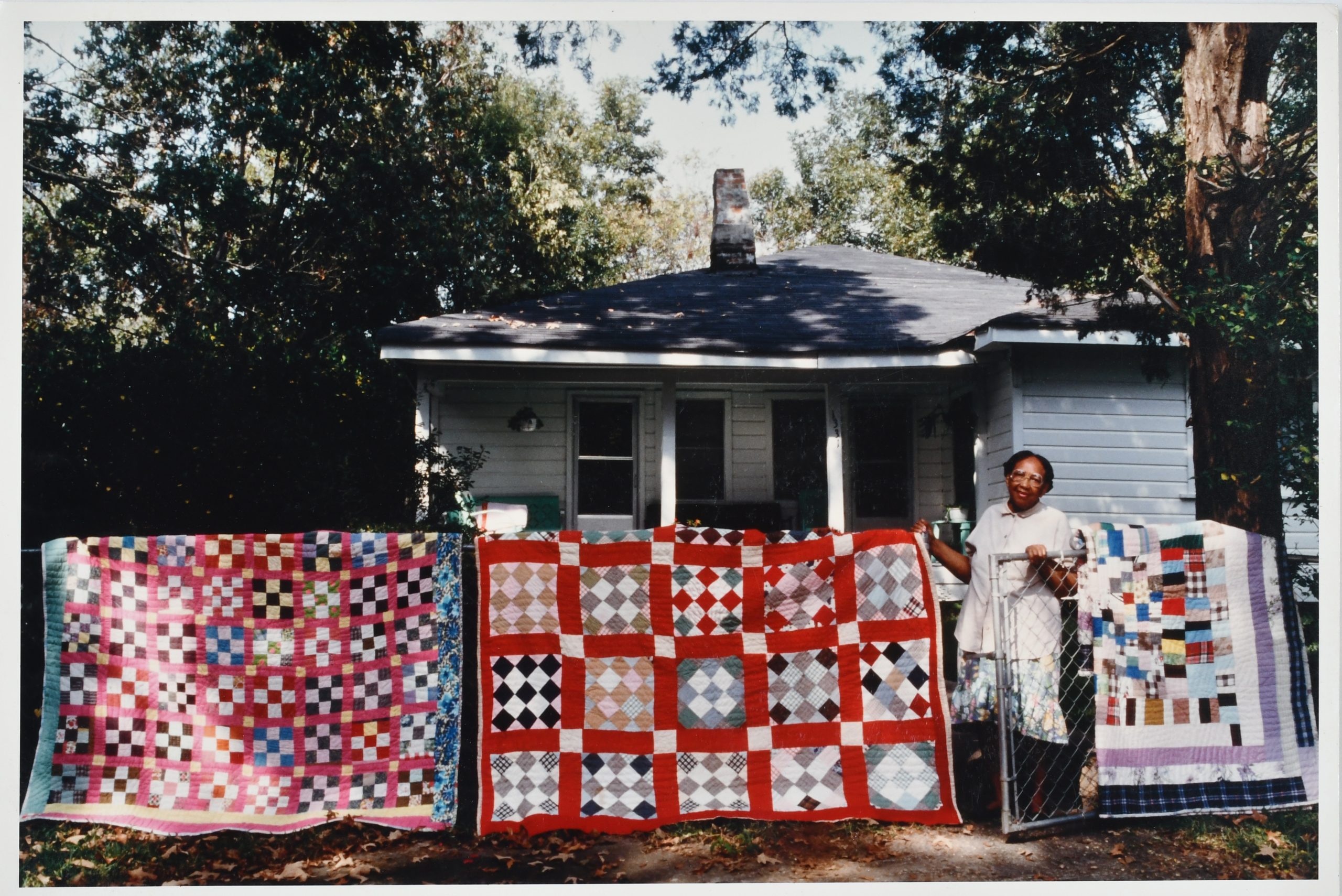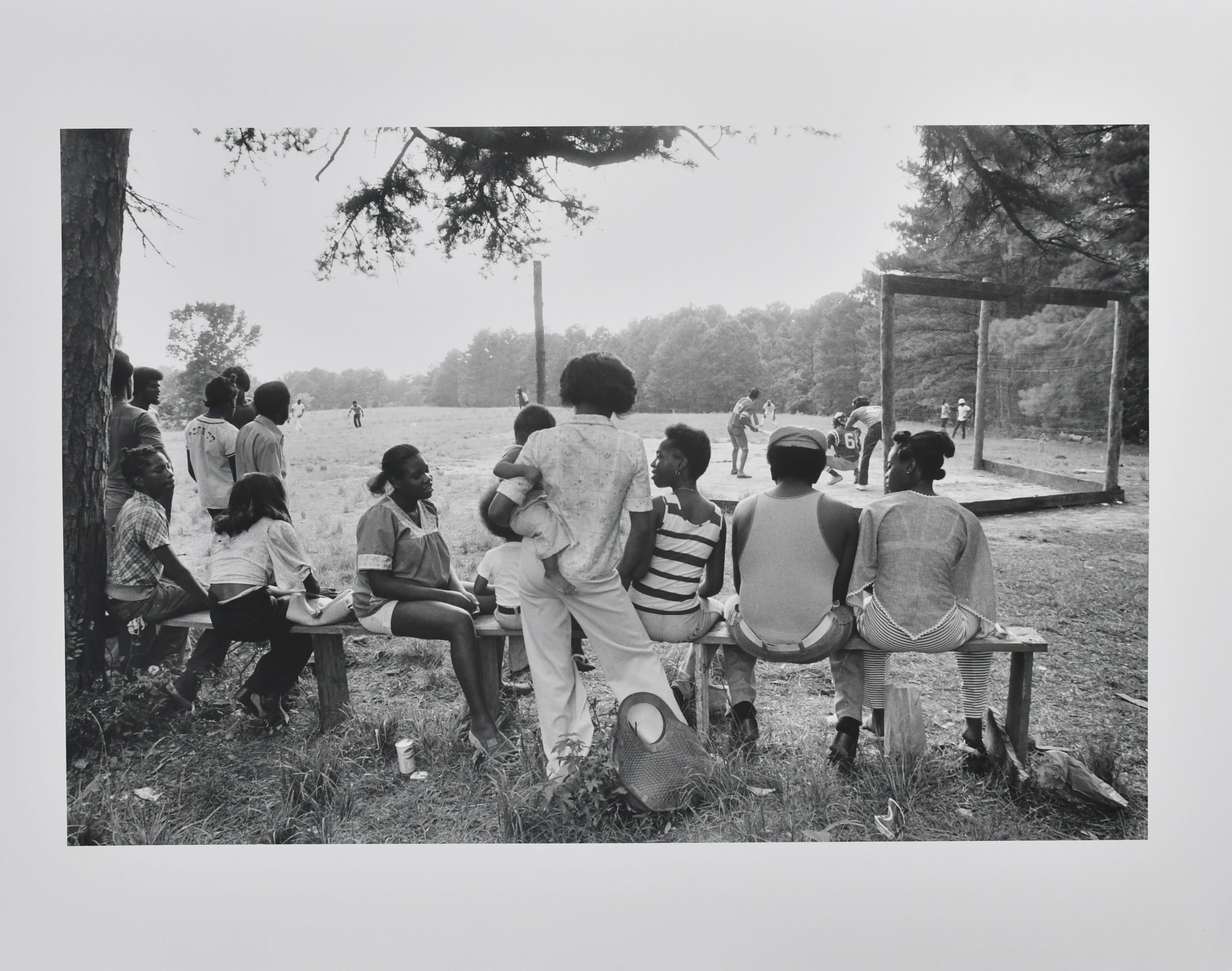The massive archive of photographer Roland L. Freeman comes to Wilson Library. It will offer unique perspectives of Black life in the Southern U.S.

Roland L. Freeman, Cigar Box Fiddler Scott Dunbar, Mississippi, 1975.
Since beginning his career with a borrowed camera in 1963, Roland L. Freeman has been one of the nation’s most prolific photographers of Black life in the 20th century.
Freeman’s massive archive now has a new home at the Wilson Special Collections Library, as part of the Southern Folklife Collection.
“The Freeman collection adds depth, dimension and a vivid visual element to our collections, giving us new ways to explore and celebrate the history, culture and folklife of Black communities in the United States,” says María R. Estorino, vice provost for University libraries and University librarian.
Researchers will be able to delve into a massive compilation of assignment and project work by Freeman. The visual treasure trove consists of nearly 24,000 slides, 10,000 photographic prints, 400,000 negatives and 9,000 contact sheets, as well as an archive of Freeman’s papers.
“Roland’s deep archive of work as a photojournalist and documentarian of Black life and culture provides unique opportunities for anyone studying history, politics, social change and cultural expression,” says Steve Weiss, curator of the Southern Folklife Collection. “It beautifully complements the SFC’s expansive holdings in Southern music, art and culture, and it opens a new era of discovery for students of African American folklife.”
The archive is a gift of the Kohler Foundation, which previously placed the collection of photographer Burk Uzzle, one of Freeman’s mentors, at Carolina. The Foundation also provided a $20,000 grant that Weiss will use for preservation and digitization work on the collection.
“We knew the Southern Folklife Collection would be an outstanding long-term steward of Roland Freeman’s photography collection,” says Liesl Testwuide of the Kohler Foundation. “Roland Freeman is a visual anthropologist, and now generations will have the chance to better understand the times and communities he documented.”

Roland L. Freeman. Florence Barnes. Wilkinson County, Mississippi, October 1992.)
Unparalleled in the history of American photography
Born in Baltimore, Maryland, in 1936, Freeman has said he was inspired to become a photographer after participating in the 1963 March on Washington. His career led him to photograph landmark events, including the unrest following the assassination of Dr. Martin Luther King Jr., the Southern Christian Leadership Conference’s Poor People’s Campaign “Mule Train” March on Washington, and Nelson Mandela’s first visit to the United States.
“I was inspired by the March on Washington, and that’s why I started taking pictures. I wanted to say something about the times in which I was living, and that’s what I’ve been doing ever since,” Freeman told the National Endowment for the Arts in 2007.
Freeman devoted much of his career to documenting Black communities across the South, with a particular emphasis on art, cultural events and folk culture in all its manifestations. He also co-directed the Mississippi Folklife Project for the Smithsonian Institution’s Center for Folklife and Cultural Heritage in 1970 and was later a research associate there.
“Roland provides a portrait of Black style and Black aesthetics that is unparalleled in the history of American photography. He understood the possibility of capturing deep narratives of tradition, especially in the Black South and the journey of those traditions in the Great Migration, that no one else has done,” observes Glenn Hinson, associate professor in UNC-Chapel Hill’s department of anthropology and a longtime collaborator with Freeman.

Roland L. Freeman, Sunday Baseball Game, Near Buffalo, MS. 1976.)
The Roland L. Freeman Collection displays the full range of his work and craft. It includes images of well-known figures including jazz musician Miles Davis, author Alice Walker, comedian Richard Pryor and historian John Hope Franklin, among others—as well as scenes of everyday life in cities and towns and the work of craftspeople, artisans and performers.
It also contains photographs from Freeman’s many books and exhibitions including “A Communion of the Spirits: African-American Quilters, Preservers, and Their Stories”; “Arabbers of Baltimore,” celebrating the city’s traditional Black street vendors; “Southern Roads/City Pavements: Photographs of Black Americans”; and projects documenting folklife in Mississippi, North Carolina and Philadelphia.
Freeman himself was an avid collector of African American quilts and Weiss calls his photographs “a landmark in the study of African American quilters.”
“Freeman’s work method is part of what distinguishes him from other documentary photographers,” says Hinson. “The brilliance of Roland is that, as a photographer, he is absolutely committed to working collaboratively with those whose photographs he’s taking. He would get to know the person and then work to capture representations that are both deep and deeply honest. That truly set Roland apart as a documentary photographer.”
Weiss says that he and his colleagues in the Southern Folklife Collection find it “humbling and a deep honor” to preserve the stories that Freeman documented through his work. “We are proud and excited to help share his journey.”


